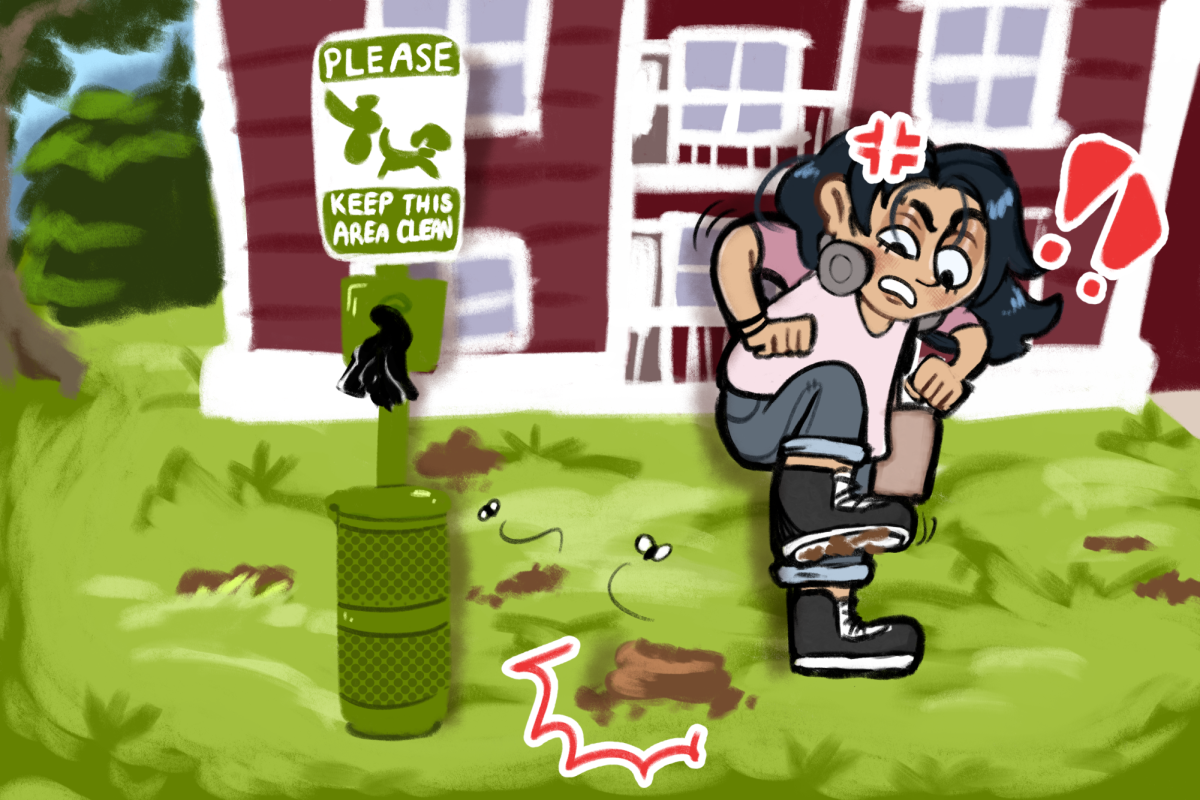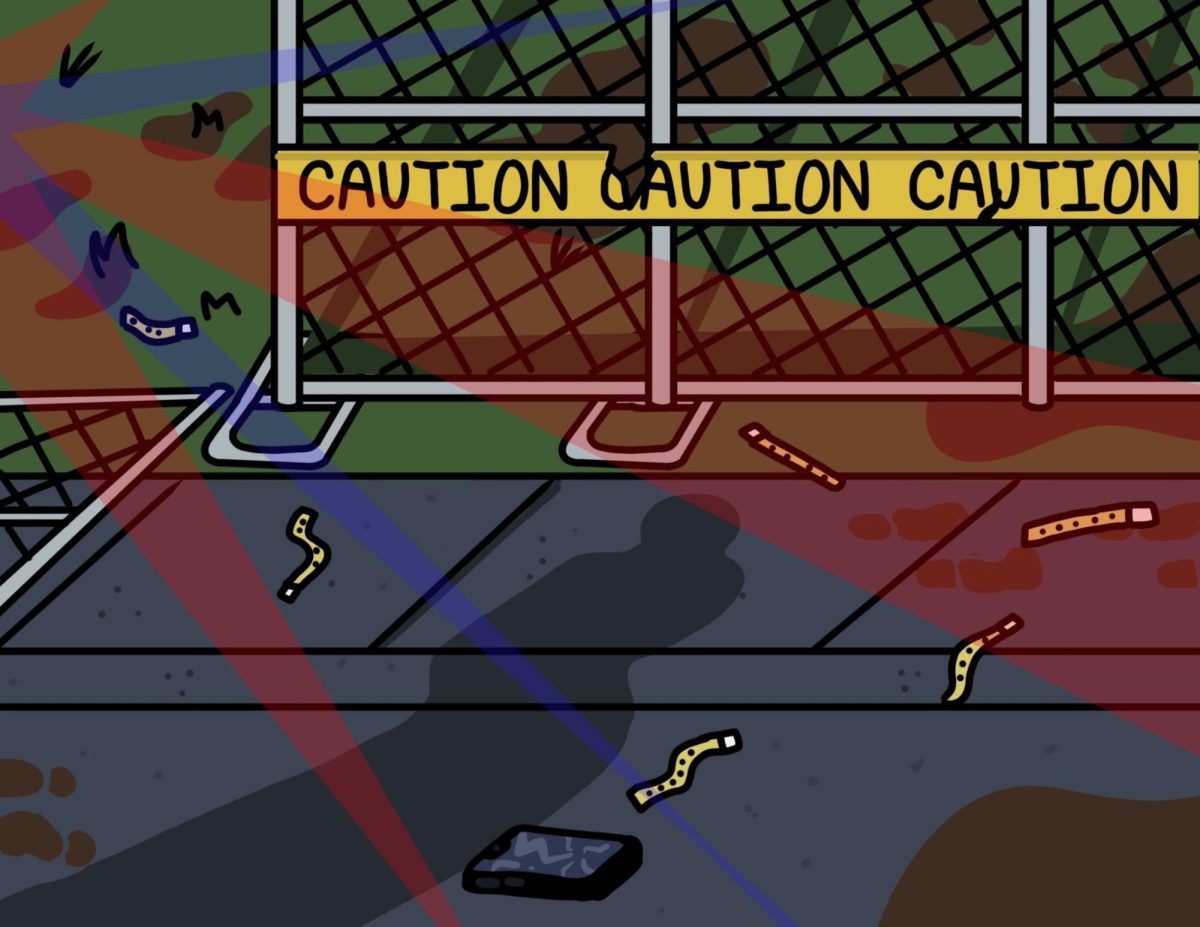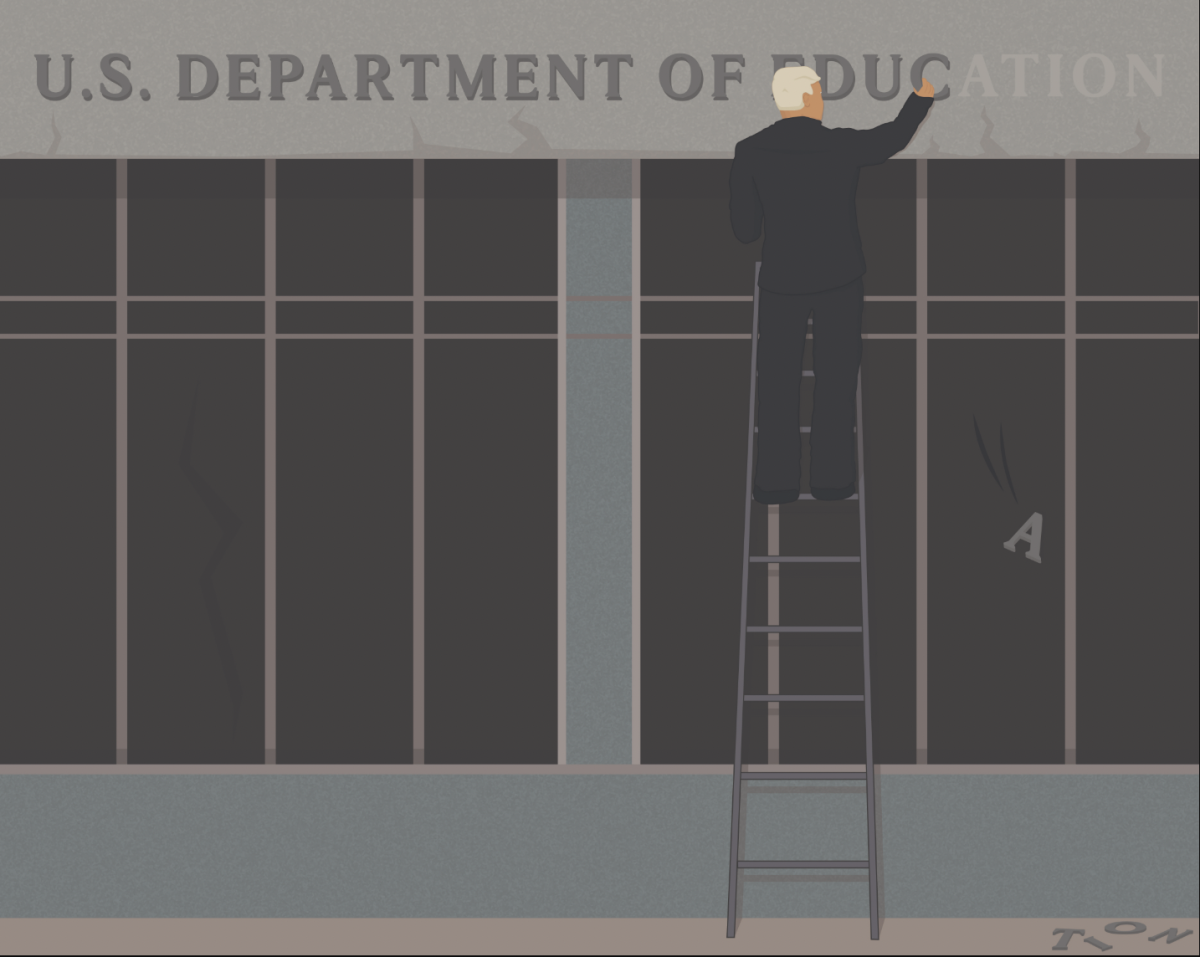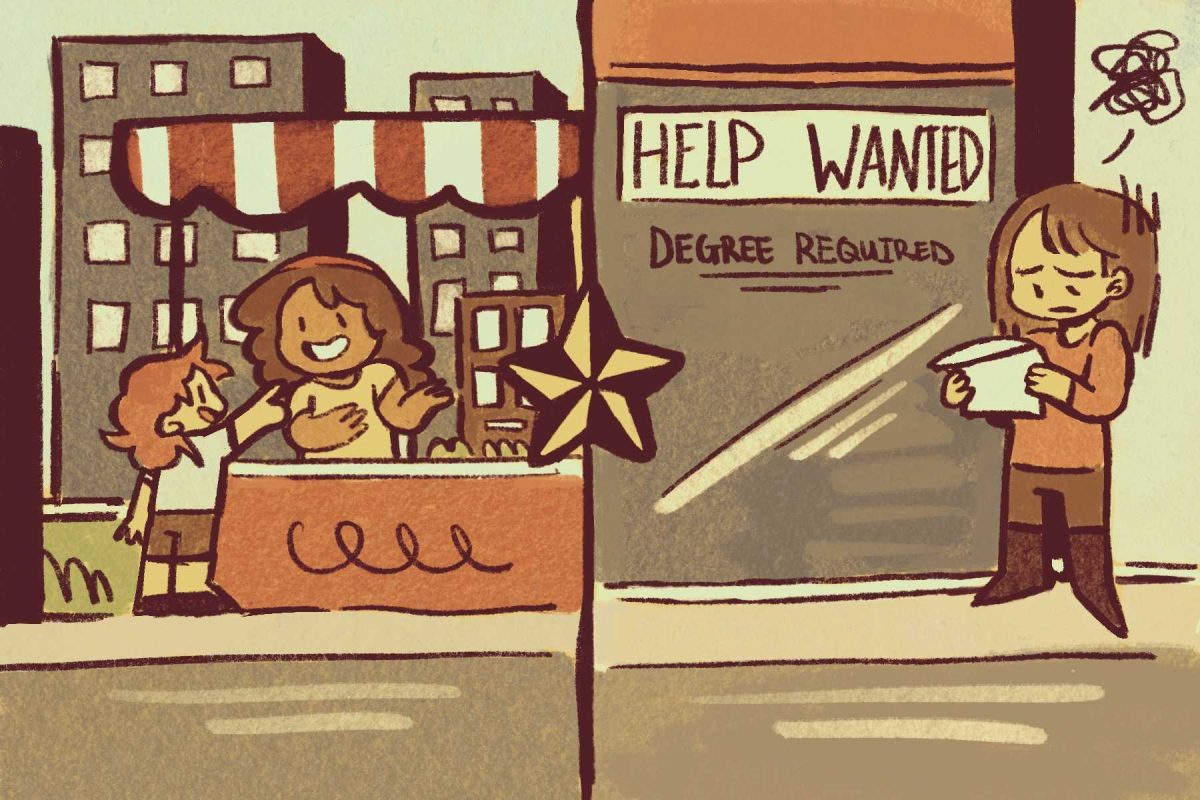Ad astra per aspera
Rudy Martinez’s recent op-ed for The University Star, titled “Whiteness,” recently garnered national media attention and instigated a backlash in the comment threads of various social media outlets. Those who voiced their outrage by calling for the closure of our University’s newspaper reminded me of a 1995 episode of “The Simpsons,” titled “Bart’s Comet.” After a large comet is discovered to be hurtling toward Springfield, the denizens become discomposed, then descend into hysteria, panic, and chaos. Later, after the disaster is averted, Moe the bartender stands at the head of an angry mob and shouts, “Let’s go burn down the observatory so this will never happen again!”
Of course, there is a great deal to find objectionable with Mr. Martinez’s inflammatory editorial. His opening assertion that white people are not generally “decent,” based on his limited personal experience, is an ungainly amalgamation of different fallacies: straw man argument, hasty generalization, and motivated reasoning. Many have pointed out the irony of his apparent lack of self-awareness, while decrying genocide, in using the same style of rhetoric as Nazi propagandists. Martinez describes white people as an “aberration,” and states, “I hate you because you shouldn’t exist.” Later attempts by some to downplay Martinez’s sentiment as being primarily about white culture in general, and not white people specifically, are hard to take seriously when the giant subtitle in the print edition was “Your DNA is an abomination.”
However, far more troubling than one, heavy-handed and broadly offensive editorial have been those responding calls to gut the paper’s staff, or even to de-fund the Star by eliminating the student fee that supports it. This is Moe Szyslak calling for the destruction of the observatory in order to protect Springfield from meteorites. This is unplugging your seismometer because earthquakes are scary. Or removing your weather vane, because you didn’t like which way the wind was blowing that one day in November.
Let’s be honest: in an age of smartphones, Twitter, and email, we no longer need a campus newspaper in order to stay informed about our community. However, we do require this venue for ideas and notions that are incompatible with our current appetite for the facile forms most rhetoric now takes—what journalists and marketers alike call “snackable content.” Because some of the things we need to think about aren’t fun and simple. They’re going to upset our stomachs or leave a bad taste in our mouths. And that’s okay. With the decline of print journalism in America, the erosion of tenure protections, and the looming end of net neutrality, we ought to be very careful about snuffing out the few remaining fonts of information which are not explicitly designed to be found agreeable by minds that are exposed to increasingly less variety. It is beyond me how some can scoff at syllabus trigger warnings and politically correct language, and then turn around and call for a newspaper to be shuttered over an offensive article.
College is a place where students are challenged, but occasionally some of these challenges will be poorly executed. Mr. Martinez’s mistake was not in speaking his mind, or even in believing those ideas which he espoused, but rather in not being willing or able to balance a burning issue with his journalistic responsibility to benefit his readership. In this sense, it’s fair to say that his reach far exceeded his grasp.
Rudy Martinez’s work will no longer be published in the Star, but neither he nor his editors should be dismissed as a punitive measure. This is a learning environment, and making errors is a part of that. If they are stripped of their megaphone, and the editorial responsibility this privilege requires, fine—but the emphasis of this action ought to be on making space for a new group of students who are equally enthusiastic to inform and challenge. Students who will make new, better, and more interesting mistakes.
Systemic racism, the specter of white supremacy, and historical inequalities are all relevant topics of discussion. And we cannot expect that these topics can or even should be divorced from the fury, pain, and bitterness they quite naturally engender. Let’s embrace these difficult subjects in a spirit of openness and accountability. Because Mr. Martinez is right about at least one thing: we are in a pivotal age of reckoning. There’s no ignoring that. And just because a telescope cannot protect us from a comet doesn’t mean it’s not worth the trouble to know what’s hurtling toward us, even now.
Ben Reed, Lecturer
English Department
Texas State University
Categories:
Letter to the Editor: Response to “Your DNA is an abomination”
December 6, 2017
0
Donate to The University Star
Your donation will support the student journalists of Texas State University. Your contribution will allow us to purchase equipment and cover our annual website hosting costs.
More to Discover











